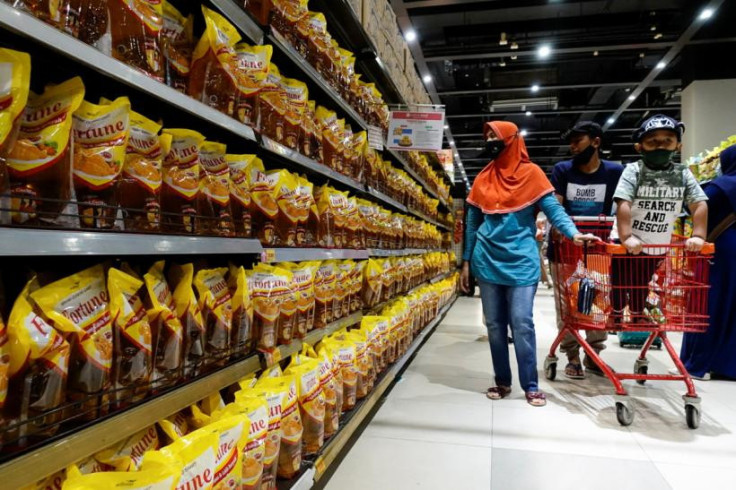Calls for Stricter Regulations on Biofuels Imports Intensify Amid Palm Oil Fraud Concerns
Around 80 per cent of waste palm oil used in the production of biofuels for vehicles is suspected to be falsely labelled.

In the wake of increasing concerns about fraudulent practices within the biofuels industry, calls for tighter regulations on imports are gaining momentum.
Investigations indicate that a significant portion of the imported "used" cooking oil, a key component of biofuels, may be falsely labelled, highlighting potential loopholes in the supply chain as demand for biofuels outpaces supply.
Approximately 80 per cent of waste oil, a crucial ingredient in the production of biofuels primarily used in vehicles, is sourced from imports.
Notably, this demand remains substantial for cars, vans and lorries, despite a growing call for biofuels in aviation.
A significant portion of these imports, approximately 60 per cent, originates from China.
However, investigations into the industry have revealed instances of fraud, raising concerns that a notable share of the imported waste oil may be incorrectly labelled.
Rather than being genuine waste, it is suspected that some of these imports may consist of repurposed palm oil products.
This discovery is particularly troubling as crop-based biofuels, once hailed as a renewable energy source, are now implicated in contributing to deforestation and exacerbating emissions.
A report commissioned by the Brussels-based NGO Transport & Environment (T&E) has highlighted the challenges faced by European countries.
While these nations are actively seeking to restrict the use of crop-based biofuels due to environmental concerns, the resulting shift in demand towards waste oil is surpassing the available supply.
This shifting landscape within the biofuels industry underscores the need for increased vigilance and regulatory measures to ensure the authenticity and sustainability of the raw materials used.
The unintended consequences of relying on waste oil, potentially derived from questionable sources, could compromise the overarching goal of transitioning towards cleaner, more environmentally friendly energy solutions.
As European countries grapple with the complexities of balancing demand, supply and environmental impact, the biofuels industry faces a pivotal moment in addressing these challenges head-on.
The biofuels sector has long been heralded as a promising avenue for sustainable energy, offering an alternative to traditional fossil fuels.
However, recent findings suggest that the integrity of this burgeoning industry may be compromised by fraudulent activities related to the importation of palm oil, a primary ingredient in biofuels.
Europe's consumption of used cooking oils has surged by more than double since 2015, primarily driven by their use in ground transport.
Anticipated growth in demand is on the horizon, especially with the aviation sector's increasing push for sustainable aviation fuel (SAF).
Notably, waste cooking oil played a central role as the primary ingredient in SAF during a recent UK government-sponsored transatlantic flight by Virgin Atlantic.
However, concerns loom over the surge in imports, prompting scrutiny from environmental advocates.
Barbara Smailagic, a biofuels expert at the NGO Transport & Environment (T&E), voiced apprehensions, stating: "Europe is being inundated with questionable used cooking oil."
Smailagic continued: "European governments acknowledge the challenges in preventing virgin oils like palm from being mislabelled as waste. We urgently need enhanced transparency and import limits to prevent used cooking oil from serving as a loophole for palm oil-driven deforestation."
Several European countries, including Germany and Ireland, have initiated official investigations into the risks of fraud associated with biofuel imports.
The European Commission has also committed to probing fraudulent Indonesian biodiesel.
While imports of biodiesel derived from palm oil have seen a decline of nearly 30 per cent, there has been a notable increase in derivatives of the oil labelled as "waste" or "residues".
T&E emphasises that even these derivatives have significant environmental impacts, raising concerns about their sustainability and authenticity.
Barbara Smailagic highlighted the pressing issue, stating, "Europe seems relentless in finding new sources to burn. However, the availability of sustainable biofuel feedstocks remains extremely limited. It is imperative that we reconsider viewing biofuels as a comprehensive solution to our climate challenges."
As European nations grapple with the complexities of meeting growing biofuel demands while ensuring environmental sustainability, the need for stringent regulations, transparent supply chains and sustainable practices within the industry becomes increasingly apparent.
The biofuels sector stands at a crossroads, where responsible decision-making and a commitment to environmental preservation are crucial for navigating the path toward a cleaner, more sustainable energy future.
© Copyright IBTimes 2025. All rights reserved.






















